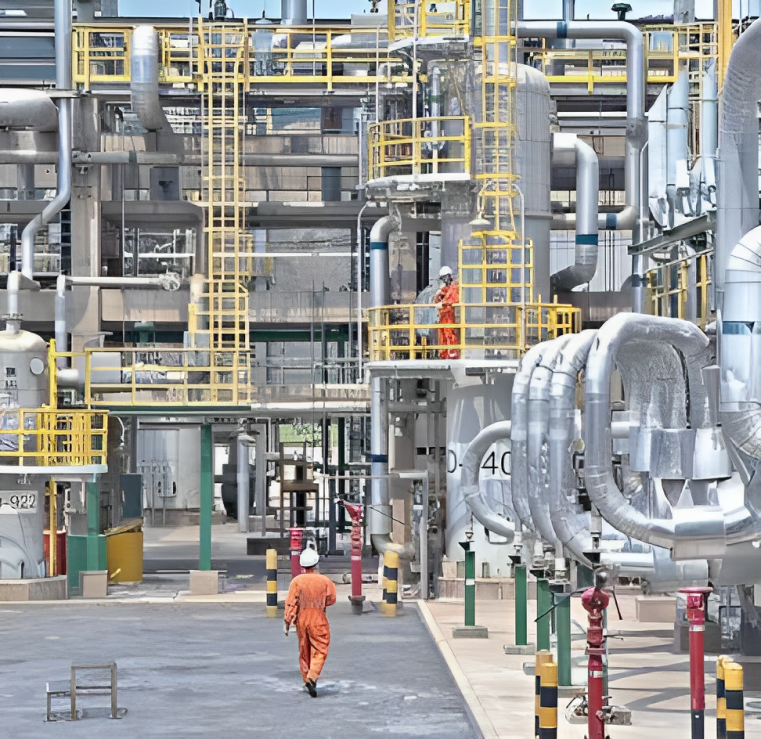Nigeria, Africa’s largest oil producer, is failing to attract new investment into its energy sector due to bureaucratic hurdles and regulatory uncertainty. According to data from the Nigerian Upstream Petroleum Regulatory Commission (NUPRC), more than half of the country’s oil prospecting blocs are idle, despite the passage of the landmark Petroleum Industry Act (PIA) in 2021.
The PIA, which was hailed as a game-changer for the oil and gas industry, aimed to overhaul the sector and make it more competitive, transparent, and profitable. The law also sought to address the long-standing grievances of host communities and environmental activists, who have suffered from decades of oil spills, gas flaring, and underdevelopment.
However, more than two years after the PIA was signed into law, the expected benefits have not materialized. Experts say the implementation of the law has been slow and hampered by political interference, corruption, and turf wars among various agencies and stakeholders. As a result, the oil and gas sector has continued to struggle with low production, declining reserves, aging infrastructure, and security challenges.
According to NUPRC, out of 57 Petroleum Prospecting Licences (PPL) in the country, about 33 are non-producing oil blocs. These blocs, which cover an area of approximately 6,700 square kilometers and have a water depth of 1,150 to 3,100 meters, have the potential to boost Nigeria’s crude oil reserves and daily production. However, they have remained undeveloped due to unattractive fiscal terms, lack of funding, technical expertise, and environmental concerns.
The NUPRC said it was planning to revoke the licenses of companies that have not been able to carry out any activities on their blocs and re-assign them to new investors who are technically and financially capable. The commission said it was focused on delivering value for the nation and ensuring compliance with the PIA.
However, some industry analysts are skeptical about the effectiveness of this move, saying it could create more legal disputes and discourage potential investors. They argue that the government should instead focus on creating a conducive environment for existing and new players, by addressing the structural and institutional challenges that have plagued the sector for years.
Some of these challenges include the lack of adequate infrastructure, such as pipelines, refineries, and power plants, to process and transport the oil and gas resources; the insecurity and sabotage of oil facilities by militants, criminals, and vandals; the environmental degradation and social unrest caused by oil spills and gas flaring; and the multiple taxation and levies imposed by different levels of government.
The analysts also call for more transparency and accountability in the management of the oil and gas revenues, which have often been misappropriated or embezzled by corrupt officials and politicians. They urge the government to implement the provisions of the PIA that aim to ensure good governance, fiscal responsibility, and environmental sustainability in the sector.
Meanwhile, as Nigeria struggles to attract investment into its energy sector, some of its neighbors and rivals are emerging as global exploration hotspots, attracting interest from major oil companies such as Shell, TotalEnergies, Chevron, and ExxonMobil. These countries include Namibia, Ghana, Senegal, Mozambique, and Angola, which have made significant discoveries and developments in their offshore and onshore basins.
Nigeria, which has a population of over 200 million people and an economy that depends largely on oil revenues, cannot afford to lag in the race for energy resources and markets. The country needs to diversify its economy, reduce its dependence on oil, and invest in renewable and alternative sources of energy, such as solar, wind, and hydro. The country also needs to harness its abundant natural gas resources, which have been largely underutilized, for domestic consumption and export.
The PIA, if properly implemented, could provide the framework and incentives for achieving these goals and transforming Nigeria’s oil and gas sector into a catalyst for sustainable development and inclusive growth. However, the government and the industry need to work together to overcome the obstacles and challenges that have hindered the sector’s progress and potential. Only then can Nigeria realize its vision of becoming a leading energy producer and provider in Africa and the world.
Source: BusinessDay NG



